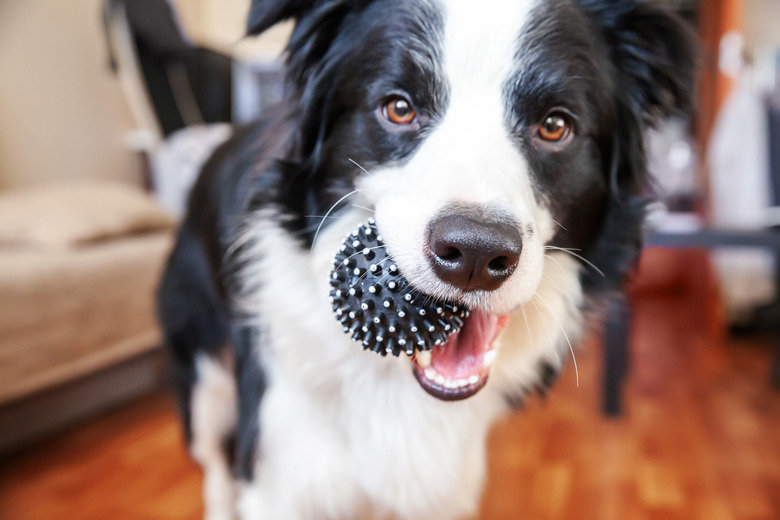Dog Life Cycles
Like people, dogs go through life cycles. A full dog life cycle includes puppyhood, puberty or adolescence, maturity or adulthood and senior status. The specific amount of time a dog spends in each stage varies by breed and size. As your dog's body and personality develop and change through the years, you'll have to adapt with him. That means keeping up with him as his health, exercise and dietary requirements change over time.
Puppyhood: Up to 9 months
Puppyhood: Up to 9 months
The puppyhood time of your dog's life is a blessing and a curse. This stage lasts 6 to 9 months. He may never be cuter than he is at this point, which is probably a good thing because it's an intense time. He's rapidly growing and getting into everything during his first six months, picking up good and bad habits. This is an ideal time to begin training your puppy, helping him to learn what's acceptable and unacceptable, as well as proper toilet training. As well, he's developing lifelong social skills.
Because he's growing rapidly during the first of the dog development stages, he should be eating quality puppy food that is formulated for his breed size and getting acquainted with his vet. By the end of his first six months, he should be vaccinated and on any parasite preventives necessary for his living situation. As well, it's time to begin considering whether he or she will be neutered.
Dog young adulthood
Dog young adulthood
Yes, dogs go through puberty too, and like human adolescence, it's not all pretty. During this phase of young adulthood, which lasts until the dog is about 3 to 4 years old, they grow into physical and social maturity. Around a year old, your vet may recommend your dog switch to adult dog food, depending on your dog's breed.
Unless your pup's a giant breed dog, chances are your dog is sexually mature at this point as well, meaning you can be surprised with puppies if you're not careful. If you're planning to neuter your dog, you may want to do it before he gets older to reduce the risk of an unplanned pregnancy. Spayed and neutered dogs may also enjoy a longer life span than intact dogs.
There can be a lot of troublesome behavior during adolescence, including destructive chewing and some aggressive or challenging behavior. Continuing with consistent, firm and positive training will help get you both through this time. Ample exercise will channel your dog's energy in a positive way and neutering can help offset some hormonal behaviors, such as roaming and marking. If your dog is in good health, he can make do with annual vet visits after his first birthday.
Dog life cycle: Adulthood
Dog life cycle: Adulthood
By the time your dog's an adult, he should be trained, though he may still challenge you occasionally, and settled into a routine with you. His annual vet visits will comprise vaccinations, fecal checks for parasites and other parasite control monitoring. As he approaches middle age, he'll probably be a bit less energetic and not as eager to go on a run or long walk with you. Depending on his medical history and breed, your vet may recommend annual blood work and urine samples to screen for organ health.
A dog's time in his prime years depends on his breed. Adulthood for a giant breed dog, such as a Great Dane, is a much shorter period compared to a Chihuahua, who may live more than two times as long as his giant breed friend.
Dog development stages: Senior citizens
Dog development stages: Senior citizens
Unlike humans who look forward to a magic number for retirement age, it's different for dogs. Because there's so much variation in the maturation rate between breeds, it's wise to look for the signs of old age instead of affixing a number. As a rule of thumb, the senior stage of the life cycle is the final 25 percent of the dog's expected lifespan.
An elderly dog may experience aches and pains, causing difficulty getting up or down and making him more reluctant to exercise. As organs begin to deteriorate, you may see the effects as a dog drinks and eats more or less than normal. Hearing loss and cloudy eyes also are common among older dogs. The vet likely will want to run senior lab work on your dog to check his organ function, and semi-annual vet visits may be routine.
The final stage of the life cycle is the end of life. This will vary depending on the dog's breed, size and medical conditions.
Always check with your veterinarian before changing your pet's diet, medication, or physical activity routines. This information is not a substitute for a vet's opinion.

